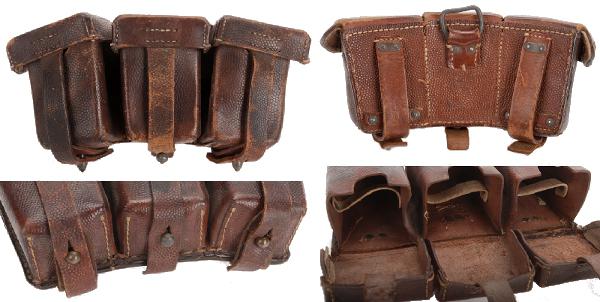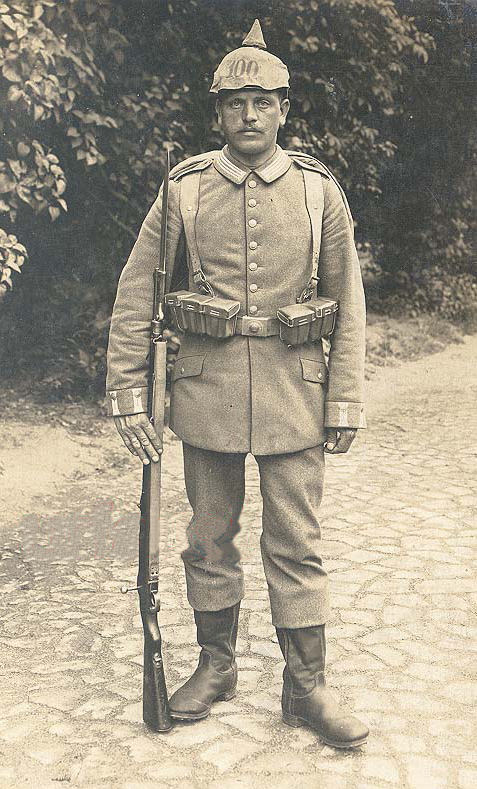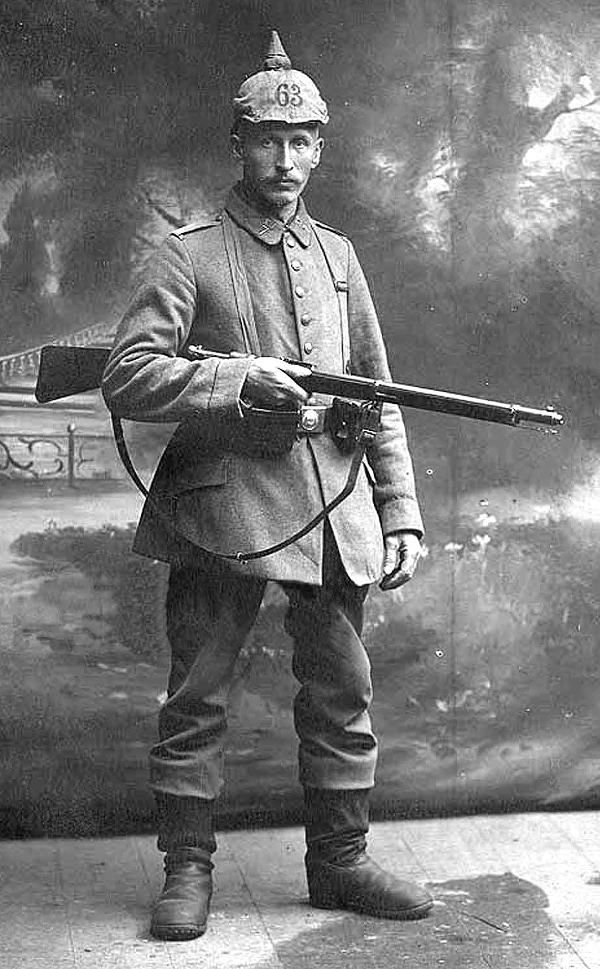Main Menu

Patronentaschen (Cartridge Pouches) M1909
The M.1909 Patronentasche (Cartridge Pouch) was part of the standard issue equipment of the infantryman, each man would wear two, one each side of the Koppelschloss (belt buckle). The back of the pouch was a single piece of heavy leather, with another sewn to the front forming three separate compartments, each with a lid secured with a leather strap that extended over the bottom and secured to a stud. Each compartment was divided into two sections with a rawhide strip rivetted to the sides of the compartment. Each section would hold two stripper clips (Ladestreifen), each with 5 rounds — or 20 rounds per compartment — with a total of 60 rounds per pouch. This brings the total carried by each infantryman to 120 rounds.

Original 1916 dated Patronentaschen. Note the hardware
appears to be iron or
steel, and the front appears to have once been blackened,
but the back shows no indication
of ever having been blackened.
Two leather straps attached to sides of the back also extended to the bottom stud on the outer compartments, these attached the pouch to the equipment belt. In the center of the back a "D" ring was attached, this "D" ring was used to connect the shoulder straps of the Tornister (back pack), or when not wearing the Tornister the Brotbeutelriemen would be looped around the neck and the ends connected to the "D" rings on both Patronentaschen to help support the weight.
At the start of the war Patronentasche were issued in raw leather with rivets and hardware of brass. However, brass was needed for artillery shells and bullet casings and in January of 1915, the hardware construction was switched from brass to zinc-plated iron or steel. Later in the war, when leather became scare, construction of the pouches from painted sheet steel was approved for use, an image of the known approved pouches shown at right.

Original photo of a Soldat wearing M.1909 Patronentaschen
Unlike the WWII practice, the First World War German Soldat was not issued "Y" straps for his equipment waist belt. Instead, the M.1887 Brotbeutelriemen (breadbag strap) hooked to each cartridge pouch and passed behind the neck, serving the same purpose as the WWII "Y" straps.

Photo of an original IR63 Soldat demonstrating
the Brotbeutelriemen's use.